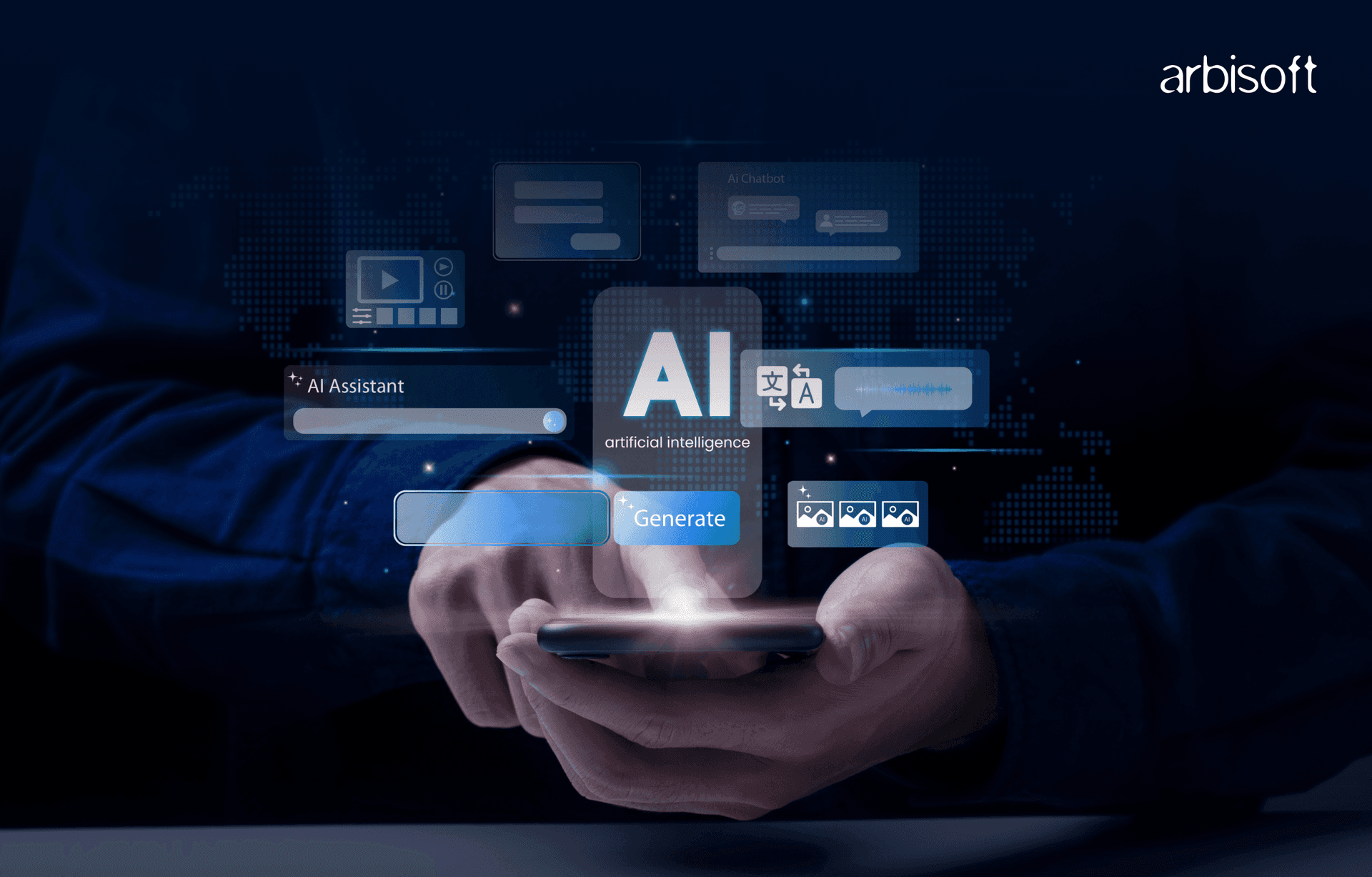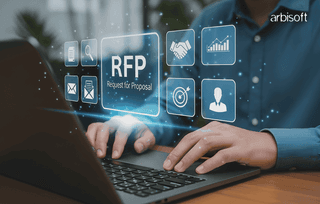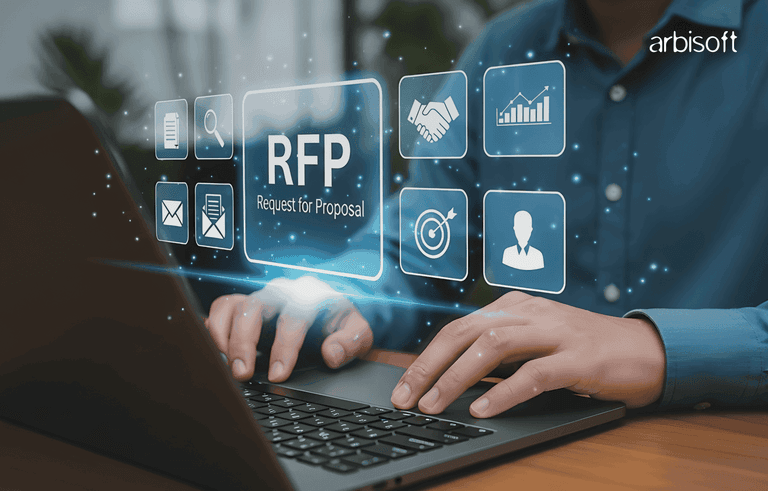We put excellence, value and quality above all - and it shows




A Technology Partnership That Goes Beyond Code

“Arbisoft has been my most trusted technology partner for now over 15 years. Arbisoft has very unique methods of recruiting and training, and the results demonstrate that. They have great teams, great positive attitudes and great communication.”
AI in QA: Opportunities and Challenges

Artificial intelligence (AI) is quickly becoming a game-changer in the world of software testing. With AI, we can speed up testing processes, catch issues earlier, and reduce repetitive tasks. However, it's not all perfect – there are challenges that come with integrating AI into QA workflows. Let’s explore how AI is shaping the future of software testing, the opportunities it brings, and the hurdles we might face along the way.
Before diving into that, though, let’s quickly define what AI is and why it’s such a big deal in the tech industry today.
Introduction to Artificial Intelligence
AI has the ability to learn, think, and make decisions just like humans. Instead of merely following instructions given by a programmer, AI uses datasets and algorithms to solve problems, identify patterns, and predict outcomes.
AI’s Role in the Tech Industry
In the contemporary era, AI is ruling the globe. It is changing the way humans interact with technology and providing solutions to complex challenges. Some of the AI technologies we find most interesting include self-driving cars, voice assistants like Siri and Alexa, and recommendation systems like Netflix and Amazon. Similarly, AI is making its way into the testing world. However, it’s important to remember that AI doesn’t provide 100% reliable results. It is still evolving, and in the near future, AI will be trained with a lot of data and intelligence through machine learning.
AI in Software Testing
With AI in testing, software teams can enhance their testing processes and address contemporary challenges rapidly and progressively. Companies can achieve faster releases and improve overall software quality with the help of AI. Let’s now discuss the opportunities AI presents in testing and how it can reduce human effort and generate excitement for testers.
Opportunities of Using AI in Software Testing
Enhancing Requirement Analysis
AI-powered tools like Tricentis LiveCompare can be used in the requirement-gathering phase to analyze requirement documents. It can identify gaps in end-to-end workflows and share testable scenarios, which can be helpful for the whole team as it saves time and significant costs by catching missing parts in the early stages.
Faster and Smarter Test Planning and Test Case Generation
Through prompt engineering skills, AI can write detailed test plans and test cases using clear requirements. Tasks that normally take several days to complete can now be done by AI in just a few minutes, provided that clear requirements are given. It can categorize test cases for the test pyramid and identify which test cases should be assigned to unit testing, integration testing, or end-to-end testing.
AI-Driven No-Code Test Automation
Testers can automate test cases using just plain English language. AI-powered tools like TestRigor can be used for this purpose. Once written, these tests can be executed after every code update across multiple browsers without human intervention, all at a rapid pace and with high efficiency.
AI-Driven Test Data Generation
Another interesting opportunity of AI in testing is its ability to create extensive test data combinations to test all scenarios. This not only helps us achieve maximum test coverage but also saves a significant amount of time, effort, and resources. Additionally, AI can transform existing data to create new data for more diverse testing. For instance, if testing a multilingual website, AI can generate test data in Spanish, Arabic, or any other language required, saving hours of manual effort.
Self-Healing AI
Revising test scripts after a code change is time-consuming, but AI can smoothly handle this by self-healing test case scripts. For example, when there is a UI change or any locator change, AI can identify the new element and update the old scripts, preventing test failures.
Defect Prediction
AI-powered tools have a fascinating feature: the ability to predict defects. They use past defect data to predict which features are more prone to errors. They can even analyze which PR commit or line of code generated this error. This helps the QA team focus their time and energy where it matters most.
So far, we’ve discussed the opportunities AI offers in testing. However, AI within QA workflows is not all smooth sailing. There are several challenges along the way. Let’s go through them.
Challenges of Using AI in Software Testing
1. Data-Driven Limitations
AI requires a large amount of data to learn patterns and user behavior to make accurate predictions. However, organizations often lack enough data, hesitate to share sensitive information such as transaction records and user credentials, and even face internal privacy and security concerns. This can lead to inaccurate predictions, misclassifications of defects, and inefficiencies. AI tools are not always reliable if not trained with enough data and may produce false positives, false negatives, or inconsistent results, disrupting workflows and reducing trust in their outputs.
For example, an AI tool might flag minor visual design inconsistencies as critical defects, even when these issues do not affect functionality, leading to wasted debugging efforts.
2. AI Integration Challenges in QA Tools
There is often incompatibility between AI tools and existing QA frameworks, complicating workflows. For example, an organization using Jira for defect tracking and a separate AI-powered tool for test case generation may struggle to align data since AI tools might have different test result formats. The company will need custom APIs or third-party connectors to link Jira (or any other test management tool) with the AI tool, which can increase costs and maintenance efforts.
3. AI Training and Specialized Skills Required
In Agile, software development is fast-paced. AI models need frequent retraining to adapt to new features, workflows, or changes in user behavior. Testers will need to learn new skills, or companies will have to hire specialists to keep up with ultra-modern AI tools, which can increase costs and complexity.
Conclusion
AI in QA helps organizations exceed typical testing limitations and achieve efficient scaling. While its implementation can be challenging and complex—especially in terms of handling data, training models, and integrating tools—all the effort will be constructive in the end. As AI continues to evolve, its role in testing will expand, making the testing process easier and faster for testers in the near future.
























